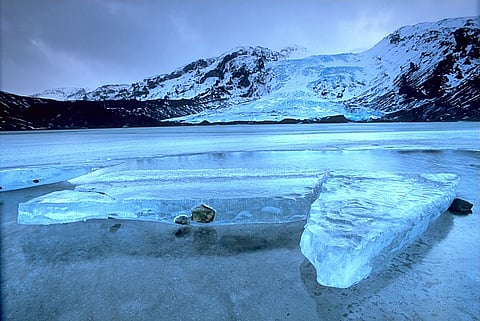
- HOME
- OPINION
- ON GROUND
- INTERVIEW
- INDIA
- NewsGram USA
- WORLD
- न्यूजग्राम
- POLITICS
- ENTERTAINMENT
- CULTURE
- LIFESTYLE
- ECONOMY
- SPORTS
- Jobs / Internships
- Misc.
- NewsGram Exclusive

New Delhi, August 04, 2017: Indus Water Treaty has recently gone through major developments, as a long pending project proposed by India has resurfaced and gained a lot of buzz in the media. While the media proclaimed that World Bank had allowed India to build Kishanganga and Ratle power plants on the western river. In an official clarification statement by the "World Bank", they have denied any confirmation on the Indian power plants being permitted to set up on Jhelum and Chenab river, they further added that the parties have agreed to continue discussions and reconvene in September in Washington, D.C.
While the media proclaimed that World Bank had allowed India to build Kishanganga and Ratle power plants on the western river. In an official clarification statement by the "World Bank", they have denied any confirmation on the Indian power plants being permitted to set up on Jhelum and Chenab river, they further added that the parties have agreed to continue discussions and reconvene in September in Washington, D.C.
What Is Indus Water Treaty?
The Indus Water Treaty is a water-distribution treaty between India and Pakistan, brokered by the World Bank. The treaty was signed in Karachi on September 19, 1960, by Prime Minister of India Jawaharlal Nehru and President of Pakistan Ayub Khan.
According to this agreement, control over the three "eastern" rivers — the Beas, the Ravi and the Sutlej — was given to India, while control over the three "western" rivers — the Indus, the Chenab and the Jhelum — to Pakistan. More controversial, however, were the provisions on how the waters were to be shared. Since Pakistan's rivers flow through India first, the treaty allowed India to use them for irrigation, transport and power generation, while laying down precise regulations for Indian building projects along the way. The treaty was a result of Pakistani fear that, since the source rivers of the Indus basin were in India, it could potentially create droughts and famines in Pakistan, especially at times of war.
Since the ratification of the treaty in 1960, India and Pakistan have not engaged in any water wars. Most disagreements and disputes have been settled via legal procedures, provided for within the framework of the treaty.
Why Is It Still a Reason of Discord?
Indus water treaty is said to be one of the world's most generous water-sharing treaty, in terms of higher sharing ratio and the total volume of basin waters for the downstream state (Pakistan gets 90 times greater volume of water than Mexico's share under a 1944 pact with the U.S.).
Today, it remains the only inter-country water agreement in the world embodying the doctrine of restricted sovereignty, which seeks to compel an upriver state to defer to the interests of a downstream state. Treaty curbs, for example, obviate any Indian control over the timing or quantum of the Pakistan-earmarked rivers' trans-boundary flows.
Pakistan's obstructionist tactics are a testament to how water remains a source of discord for Pakistan despite a treaty that is one of the most successful water-sharing pacts in the world. Run of the river project was a major example that displayed the India-Pakistan rocky relations, by aiming to deny J&K the limited benefits permissible under the treaty, Pakistan wanted to further its strategy to foment discontent and violence there.
While the decision to approve this project was pending, Pakistan used the situation to spread violence in India, even though soon after India blamed Pakistan for the Uri attacks, the Prime Minister of India approved the project followed by that was his statement – "blood and water cannot flow together". His remarks were seemingly two fold and the terrorism had to end but India could have fully utilized the economic potential available to it within the treaty.
Kishanganga and Ratle Power Plant Project:
While India had proposed this project much earlier in 2010, Pakistan standing true to their fanatical nature projected international arbitration over the proceedings of a small scale 330-megawatt plant in a small tributary of Indus river called Kishanganga. It persuaded the arbitral tribunal in 2011 to order India to suspend work on the project. With Indian work suspended, Pakistan ramped up construction of its own three-times-larger, Chinese-aided hydropower plant on the same river so as to take a priority right on river-water use.
While India requested the appointment of a neutral expert in this matter and contending Pakistan's "technical" concerns. The World Bank's role in relation to "differences" and "disputes" is limited to the designation of people to fulfill certain roles when requested by either or both of the parties, the fact sheet said.
Earlier, in a letter dated July 25, the World Bank had assured Indian Ambassador to the US Navtej Sarna its "continued neutrality and impartiality in helping the parties to find an amicable way forward."
The issue still remains unresolved as the World Bank mediators in a fact sheet have raised concerns from both the parties involved and "in a spirit of goodwill and cooperation", the parties have agreed to continue discussions and reconvene in September in Washington DC.
–Prepared by Nivedita Motwani. Twitter @Mind_Makeup
NewsGram is a Chicago-based non-profit media organization. We depend upon support from our readers to maintain our objective reporting. Show your support by Donating to NewsGram. Donations to NewsGram are tax-exempt.
Click Here: www.newsgram.com/donate
